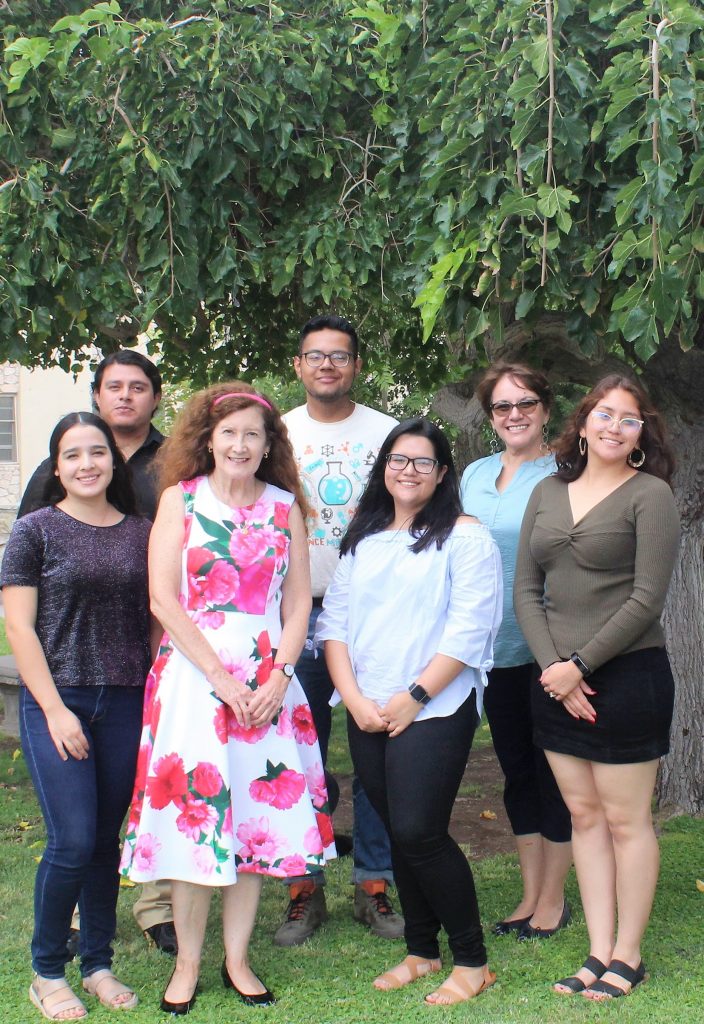Some might think finding a single kitten a new home does not matter in today’s world, but it was just that compassionate act that helped catapult Dr. Pamela Lara into her newfound purpose of studying the environment.
“There was a small door I opened, and it became like a flood to me. When I became involved in animal rescue, I became acquainted with people who had a completely open frame of mind. I was talking to people who not only cared about animals, but about all living things and suffering,” she said. “My mind opened to what I knew and what I wanted. I became aware of suffering, not only of animals, but of people. I learned about injustice. I learned of a different type of real injustice – environmental injustice.”
Growing up in Chile, Dr. Lara obtained her law degree. Thus, she had a connection to the scales of justice, but it tipped when she moved to the United States. As she puts it, she learned to “move in your awareness.” Her connections to new people and places made her realize she needed to be on the “battlefront” of environmental injustice. She said, “To think that not everyone has access to pure water or clean air is terrible. You learn people are living in trash. I came into understanding injustice on a greater and global level.”
Dr. Lara began to change how she lived, including the way she cleaned her house to be more environmentally sensitive. She also became more aware of U.S. society’s throwaway culture. “I grab that water bottle in my hand. I drink it, and it is in my hands for less than a minute. I then throw it away, but it is going to be in the environment for my kids, my grandkids, and the kids of my grandkids. Suddenly, I had this awareness of the environment,” she said.
Rethinking her next career path came with some reservations. With her age and English being her second language, she knew she would be labeled as a nontraditional student. However, that did not stop Dr. Lara. She obtained a Bachelor of Science in Physics at Utah Valley University and a Master of Science from the University of Texas at El Paso (UTEP). It was at UTEP she learned about Dr. Rosa Fitzerald, Professor of Physics, who is one of NCAS-M’s longtime faculty members.
Connecting with NCAS-M gave Dr. Lara a concrete plan to move forward in her career. The grant’s structure of being connected to an advisor, having planned professional development meetings, and offering a place to work that showed her passion and skills proved to be just what she needed.
“I came to the university with some idea of what I wanted to do, but then I found this professor, the PI, who already set out a plan for me. Suddenly, she sent me all that I needed to do and it was wonderful. Otherwise, I would have all these ideas just moving around in my head, but no plan in front of me. I could now concentrate safely knowing that I could find meaning in what I was doing.”
Dr. Lara worked alongside Dr. Fitzgerald who guided her through her journey to earn a Doctor of Philosophy in Environmental Science and Engineering in 2022. After completing her studies, Dr. Lara joined Howard University as a Postdoctoral Researcher, and she began to work full-time studying the environment.
She spends time between Howard University’s main campus in Washington, D.C. and the Howard University Beltsville Campus in Prince George’s County, Maryland. In partnership with National Oceanic and Atmospheric Administration (NOAA), the government entity that funds NCAS-M, National Aeronautics and Space Administration, and other federal agencies, the Beltsville location acts as a research hub for the study of atmospheric sciences. It is there Dr. Lara works to better understand and predict air quality and weather forecasting by effectively analyzing how model predictions vary from the suburban Beltsville campus to the urban Washington, D.C. campus.
While she may be labeled as a scientific number cruncher, Dr. Lara knows just how important her research is to the U.S. citizens. “Information in science is like a little ant. Little by little you construct this huge fountain of knowledge that comes to create all that we have right now. All these grants, and all these organizations like NOAA and others came from these tiny drops of knowledge that people like us create,” she said. “If you want to make a difference in the eyes of others, you will always feel frustrated, but you must know what is in your heart. You want to inform whoever is making decisions that this is a tiny bit more information, because it was not done before me.”

NCAS-M faculty and fellows at the University of Texas El Paso.
